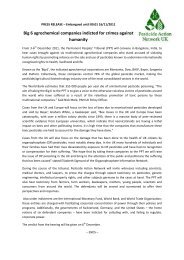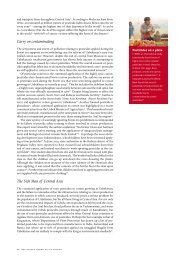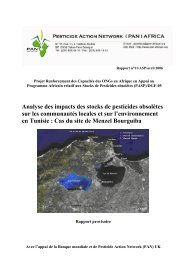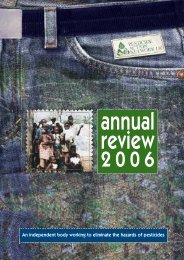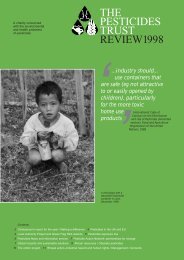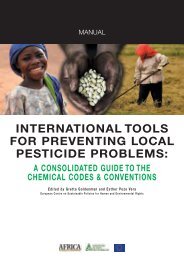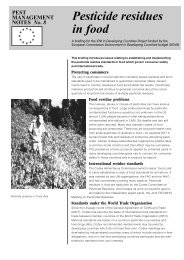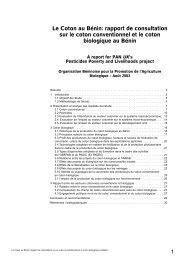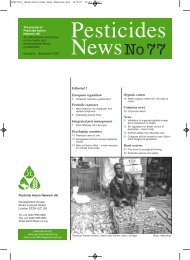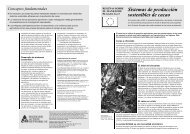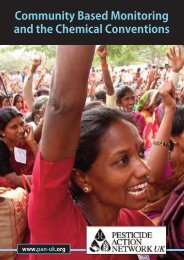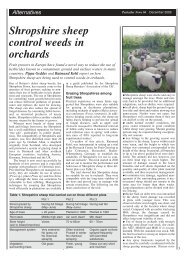Tanzania Multi Stakeholder Map - WebNG
Tanzania Multi Stakeholder Map - WebNG
Tanzania Multi Stakeholder Map - WebNG
You also want an ePaper? Increase the reach of your titles
YUMPU automatically turns print PDFs into web optimized ePapers that Google loves.
9.0 Implementation status of the Basel and Bamako Conventions<br />
9.1 Implementation status<br />
Since the ratification of Basel and Bamako Conventions various activities<br />
have been undertaken, these include: -<br />
<strong>Tanzania</strong> acceded to the Basel Convention on 7 th April 1993. and also<br />
acceded the Basel Convention amendments of 1995 and 1998 in August<br />
2002. <strong>Tanzania</strong> is also a Party to the Montreal Protocol on substances<br />
that deplete the Ozone Layer (1987). The government has also ratified<br />
the Rotterdam Convention on the Prior Informed Consent Procedure for<br />
Certain Hazardous Chemicals and Pesticides in International Trade<br />
(2002); and the Stockholm Conventions of Persistent Organic Pollutants<br />
(POPs) (February 2004). These three Conventions, which deal with<br />
chemical products, are closely linked to the Basel and the Bamako<br />
Conventions.<br />
Several policies and legislations in <strong>Tanzania</strong> are in place to address<br />
pollution problems by liquid and solid wastes. These policies include the<br />
National Environmental policy (1997), the Sustainable Industrial<br />
Development Policy (1997), Mineral Policy (1997) Water Policy (2003) and<br />
Energy Policy (2002), Health Policy (1990) currently under review and<br />
Human Settlement Policy (2000). There is little coverage on matters of air<br />
pollution.<br />
The National Environmental Policy provides specific objectives to address<br />
pollution issues including wastes and hazardous waste. These objectives<br />
are: -Promotion of technology for efficient and safe water use, particularly<br />
for wastewater treatment and recycling; promotion of health related<br />
programmes such as separation of toxic wastes and pollution control at<br />
the household levels; development of environmentally sound waste<br />
management systems for urban areas; installation of resources-saving<br />
and waste recycling facilities and use of clean technologies; and<br />
integrated planning and improved management of urban centers.<br />
The National Environment Policy provides specific objectives to address<br />
pollution issues including wastes and hazardous wastes. There objectives<br />
are:- Promotion of technology for efficient and safe water use, particularly<br />
for wastewater treatment and recycling; promotion of health-related<br />
programmes such as separation of toxic/hazardous wastes and pollution<br />
control at the household level; development of environmentally sound<br />
waste management systems especially for urban areas; installation of<br />
resource-saving and waste-recycling facilities and use of clean<br />
101





